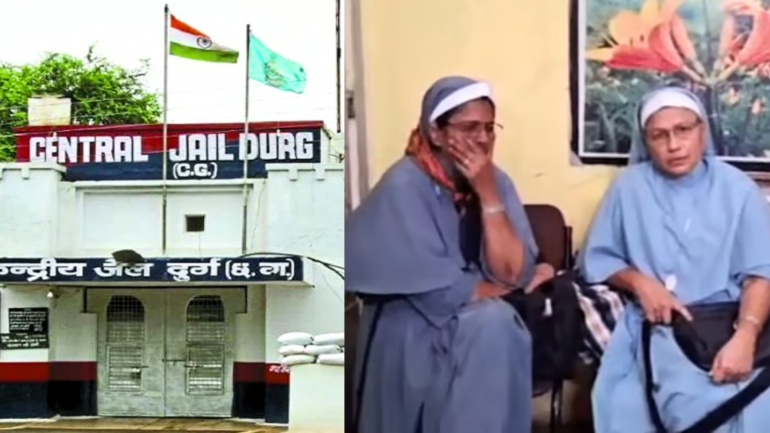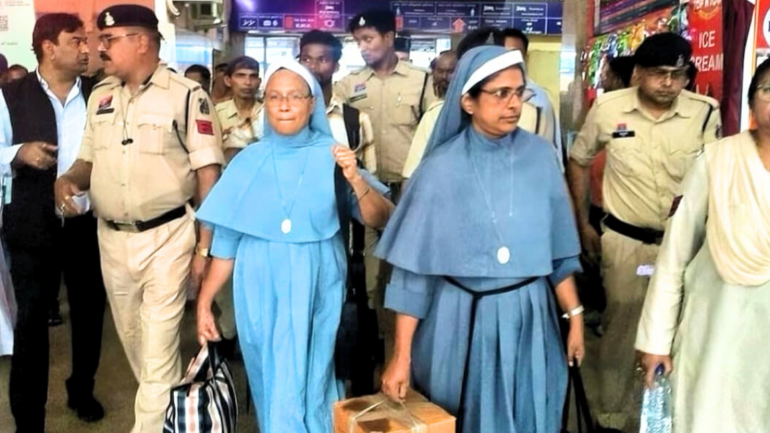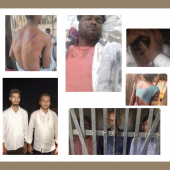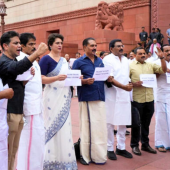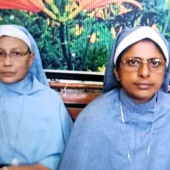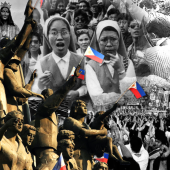Two Nuns in Jail, a Nation on Trial: India’s Religious Freedom Crisis
I cannot stop thinking about two Catholic nuns sitting in an Indian jail cell, wondering how helping young women find jobs became a crime. Sisters Preetha Mary and Vandana Francis were arrested on July 25 while doing something completely ordinary, accompanying three women to kitchen jobs at a convent. Their story reveals something disturbing about the India we are becoming.
Here is what happened. The nuns were travelling by train from Chhattisgarh to Agra with three women aged 19 to 22. The women had their families’ written permission and were heading to legitimate jobs paying decent wages. They carried all the right paperwork. Everything was legal and aboveboard.
But at Durg Railway Station, a ticket checker got suspicious and called local Hindu nationalist activists. These activists surrounded the nuns and accused them of human trafficking and forcing people to convert to Christianity. Video footage shows one activist threatening to “smash your face” if the nuns did not comply. The women insisted they were already Christians and travelling willingly. None of it mattered. Police arrested the nuns anyway.
The three women are now in government custody, and under pressure, they have changed their stories to say they were being taken against their will. Their original statements and consent letters tell a different truth, but truth has become flexible when angry mobs decide what is acceptable.
This is not an isolated incident. It is part of a pattern that should alarm anyone who cares about religious freedom. Attacks on Christians in India have jumped from 147 incidents in 2014 to 840 in 2024. That is nearly six times more in just ten years. In the first half of 2025 alone, there were 378 documented attacks, more than two every single day.
These numbers represent real people. Families were thrown out of their villages. Churches burnt down. People arrested on made-up charges. In some areas, Christian families cannot even bury their dead on land their ancestors used for generations.
What makes this case particularly revealing is the political scramble it has caused. India’s ruling party actively courts Christian voters in states like Kerala, where Christians make up nearly one-fifth of the population. Party leaders visit Christian homes with smiles during elections and won a major seat there partly through Christian support. But in states where Christians are a tiny, vulnerable minority, the same party either ignores or enables their persecution.
This contradiction is not sustainable. You cannot promise religious freedom to Christians when you need their votes, while allowing them to be terrorised when they cannot fight back politically.
The draconian Anti-Conversion Law is used as a weapon to intimidate Christians into silence. When vigilante groups can trigger arrests simply by making accusations, these laws stop protecting religious freedom and start destroying it.
The irony is painful. Christianity has been in India for nearly 2,000 years, arriving with St. Thomas in the first century. Christians run thousands of schools and hospitals across the country, often in the poorest areas where government services fall short. These same nuns have been recognised for their work treating leprosy patients and caring for the sick. Their reward? Jail cells and fabricated charges.
Consider the absurdity: two women who have dedicated their lives to serving others are imprisoned while their accusers, who made threats on camera, walk free. The police did not investigate the documented threats. Instead, they arrested the victims. This suggests either stunning incompetence or deliberate bias, and neither option offers much hope.
The three young women at the centre of this story come from a poor, conflict-ridden area. They wanted jobs, nothing more. Their families gave permission. The nuns offered legitimate work. But in today’s climate, helping tribal Christian women find employment becomes suspicious, evidence of some foreign plot to undermine the country.
What is most troubling is how quickly institutions collapsed. Police should investigate crimes regardless of politics. Courts should expedite cases involving false charges. Instead, we see law enforcement taking orders from angry crowds and justice delayed while innocent people sit in jail.
This matters far beyond India’s borders. The country wants to be seen as a global leader, a democratic alternative to authoritarian powers. But democracies do not jail nuns for helping people find work. They do not let mobs dictate police action. The international community is watching, and India’s treatment of religious minorities is becoming impossible to ignore.
The path back to sanity is not complicated, but it requires courage. Police must do their jobs without bowing to political pressure. Courts must move quickly on obviously fabricated cases. Politicians must choose between constitutional governance and mob appeasement. Most importantly, ordinary citizens must recognise what is happening and reject it.
India’s Constitution promises religious freedom. Those promises mean nothing if they are not enforced, if vigilante groups can effectively override the law through intimidation and violence.
Sisters Preeti Mary and Vandana Francis remain in jail. Their only crime was being Catholic nuns who tried to help young women find honest work. Their fate will determine whether India remains a place where all citizens can practice their faith freely, or whether it becomes something much darker.
The choice is not really about religion. It is about whether India will be governed by law or by whoever shouts the loudest. Right now, the shouters are winning, and two innocent nuns are paying the price for everyone else’s cowardice. The Constitution they swore to protect sits captive alongside them, waiting for someone brave enough to set it free.
Radio Veritas Asia (RVA), a media platform of the Catholic Church, aims to share Christ. RVA started in 1969 as a continental Catholic radio station to serve Asian countries in their respective local language, thus earning the tag “the Voice of Asian Christianity.” Responding to the emerging context, RVA embraced media platforms to connect with the global Asian audience via its 21 language websites and various social media platforms.





